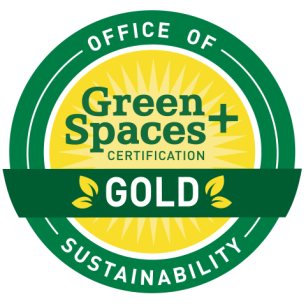Sustainable Laboratories at CSJ
Sustainability in the Science Labs at Campus Saint-Jean

The science teaching laboratories at Campus Saint-Jean are proudly and vigorously committed to sustainable development. We are aware of the impact of science activities on human health and the environment. For this reason, in 2015 we began a sustainable and 'green' initiative in our biology, chemistry, and physics laboratories. We started by introducing small changes to our routine, such as reducing our use of electricity, water and paper.
Initiatives in our Science Labs
- Acquisition of equipment with low energy consumption.
- Changing the protocols of several experiments to replace toxic and dangerous products with more benign alternatives. For example, this initiative has enabled us to eliminate our use of dichloromethane, a chlorinated solvent known to be hazardous to health and the environment.
- Creation of experiments focusing on sustainable development, environmental protection, and the use of green technologies to teach these concepts to our students.
- Creation in our chemistry laboratory of a water recycling system used to feed condensers (equipment that uses water to cool organic solvent vapours, preventing them from evaporating). This water recycling system allows us to save around 15,000 litres of water every year! This innovative idea made us the winner of the Sustainability Leadership Award offered by the U of A's Office of Sustainability. Our chemistry lab was also named one of the University of Alberta's four model green labs.
- Introduction of a green chemistry course (CHIM 340) at Campus Saint-Jean. Based on the 12 principles of green chemistry, this course will make our students aware of the importance of and numerous ways to minimise chemical waste, use renewable resources, and eliminate the production and use of hazardous products in research, teaching, and industrial laboratories.
- Guided tours of our laboratories offered to members of the scientific, educational, and public communities to share the work we do at the CSJ in sustainable science.